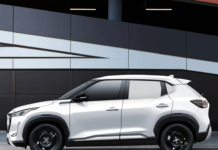For many motorists, the vehicle ownership experience can be summed up with two obligations: always make your monthly instalments and keep fuel in the tank.
Both of those are true. Keeping up with repayments ensures a spotless credit record, and a fuel budget will keep the wheels turning. However, there are also other obligations that come as part and parcel of owning and running a car. Each one of them also has an impact on the car owner’s budget.
“A trouble-free and financially-savvy car ownership experience go hand-in-hand,” says Rudolf Mahoney, Head of Brand and Communications, WesBank. “By spending smartly and looking after their cars, motorists can save a lot of money in the long run.”
WesBank’s advice for smarter motoring and saving money can be found in the five tips, below:
Service with a smile
WesBank’s best advice for car owners is to set aside monthly savings to cover the costs of regular services, which are either every 12 months or 15000 – 20000 kilometres. Over a year, a small monthly amount of R300 – 400 should be enough to cover regular service costs; at the very least these savings can take the sting out of a bigger bill.
While maintenance does cost money up front, it pays off in the long term. Not only will a regularly serviced vehicle be reliable, with a lower chance of breaking down and surprise repair bills, but a full service history also adds to the value of the car. When trade-in time comes around, this will pay off: you’ll be offered a higher price for your vehicle, and that means borrowing less money for your next car loan.
Insuring your budget
It’s been mentioned time and again, but comprehensive insurance is a mandatory item for any car owner. The financial benefits are simple: you pay a reasonable insurance premium that will cover you for risks such as accidents, thefts, hijackings and more.
The financial benefit is massive: if you are involved in a car accident, repairs can cost tens of thousands of Rands that you simply don’t have, but insurance will pay for it. Similarly, if your car is stolen, hijacked or written off, your comprehensive insurance policy will cover the amount owed to the bank. (However, there may be a shortfall amount; check with your insurance provider if this is covered).
Without insurance, you would have to pay for expensive accident repairs out of your own pocket. And if the car is a total loss, you would still have to pay off your car loan every month – for a car you no longer have.
Legal and licensed
Annual licence fees are one of motoring’s certainties. These are the fees paid to the licencing department of the province you live in, to ensure your vehicle is licensed to drive on the road.
It’s important to keep some cash aside for this annual expense, while also bearing in mind that the costs do increase each year. The fees can range from as little as approximately R220 for a motorcycle, all the way to more than R1000 for a large SUV or bakkie. Simply saving R100 a month could help cover license fees for the year, without disrupting your monthly budget.
If you forget to renew your licence, you’ll be liable for penalty fees – something that can upset your budget and cost you dearly when the time comes to sell the car.
Show and shine
A simple car wash might make you feel good about your pride and joy, but keeping the paint fresh and body free of scratches has other benefits too. Just like servicing, keeping your vehicle’s exterior and interior in tip-top condition greatly adds to the value of your car.
A little elbow grease and effort keeps your car clean and will pay off when you trade it in or sell it. Buyers will recognise that the car has been looked after and won’t mind paying a bit more for a pristine used car.
Keep the wheels turning
Buying replacement tyres is another certainty that comes with car ownership. Depending on your model of car and driving habits, this could be an expensive exercise, and one that can cripple your budget if you are not prepared.
The easy advice is to use your savings to cover tyre costs – or even use WesBank’s WShop to get a loan for purchasing tyres. This will have a minimal impact on your monthly budget, while keeping you mobile.
But regular inspection of your wheels and tyres (perhaps while washing your car) can also save you money. Tyre maintenance is as simple as observing the wear in the tread of the tyres and ensuring that they are inflated properly. It is also wise to regularly rotate tyres: the practice of swapping tyres from front to rear, and left to right. These steps, as well as less demanding driving habits, can greatly extend the life of your tyres and save you a lot of money throughout the life of the car.
Provided by Wesbank




























